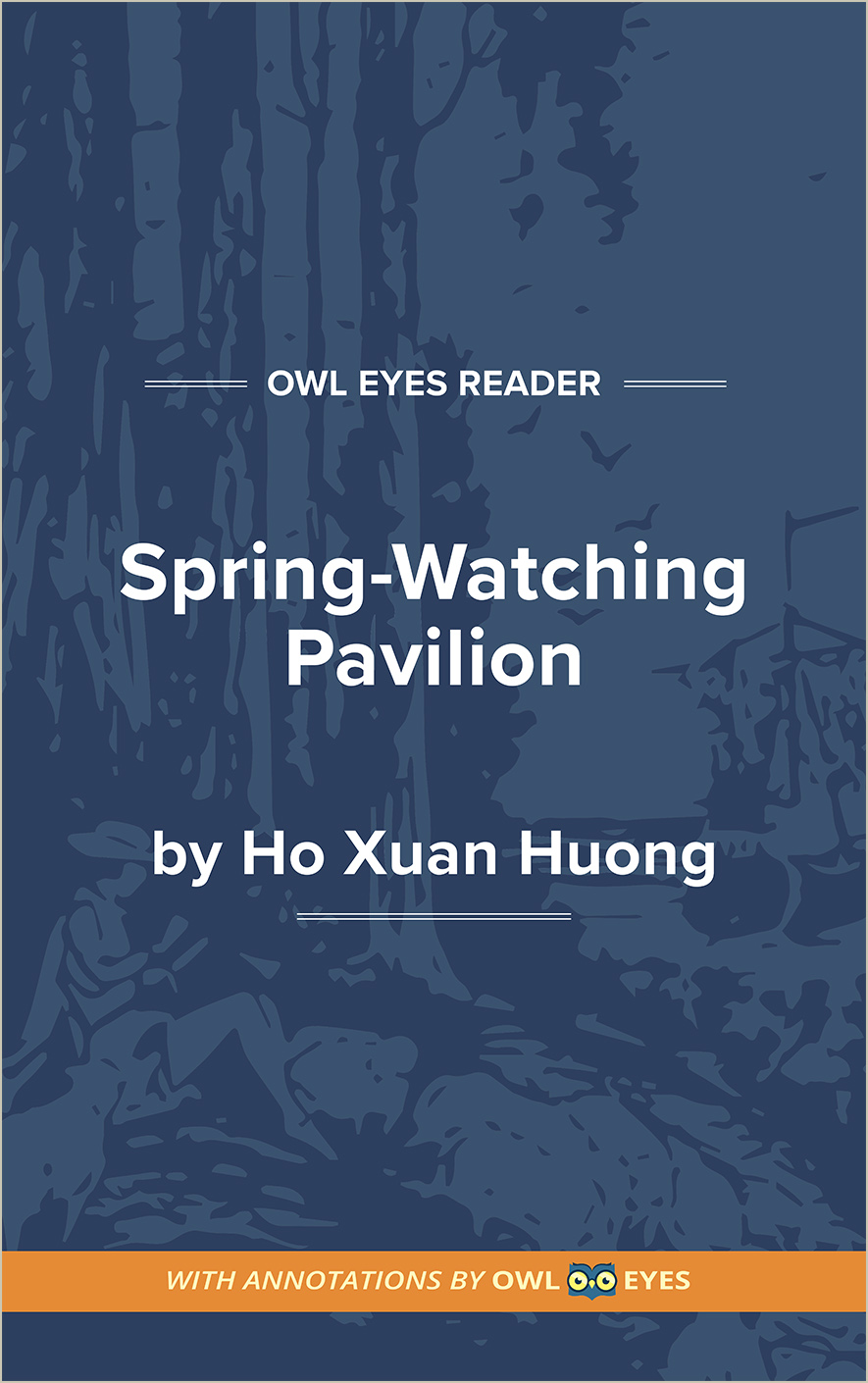- Annotated Full Text
- Literary Period: Vietnamese Classicism
- Publication Date: 1909
- Flesch-Kincaid Level: 5
- Approx. Reading Time: 0 minutes
The poet Ho Xuan Huong lived in Vietnam in the late-18th and early-19th centuries. Historians suspect that she was something of a social outcast. After the death of her first husband, Ho Xuan Huong lived as a solitary poet and tutor, traveling widely across Vietnam. A central concern of her poetry is sexuality, a topic Ho tackles with a frankness and humor unheard of in her time. Much of Ho’s writing criticizes the societal, cultural and religious norms of Vietnam. Her work openly takes aim at both Confucianism and Mahayana Buddhism, the prevailing philosophical and religious orders of her day. Ho’s treatment of Buddhism in particular is one of the central themes in “Spring-Watching Pavilion”; the speaker draws on Buddhist tradition and ultimately dismisses it. More broadly, Ho’s outsider identity resonates throughout the poem. A desire for solitude and a scorn for the ways of the civilized world are central threads in “Spring-Watching Pavilion.” In a sense, the speaker wishes the world outside the pavilion to fall away entirely. The answer is “here.”
- Annotated Full Text
- Literary Period: Vietnamese Classicism
- Publication Date: 1909
- Flesch-Kincaid Level: 5
- Approx. Reading Time: 0 minutes

